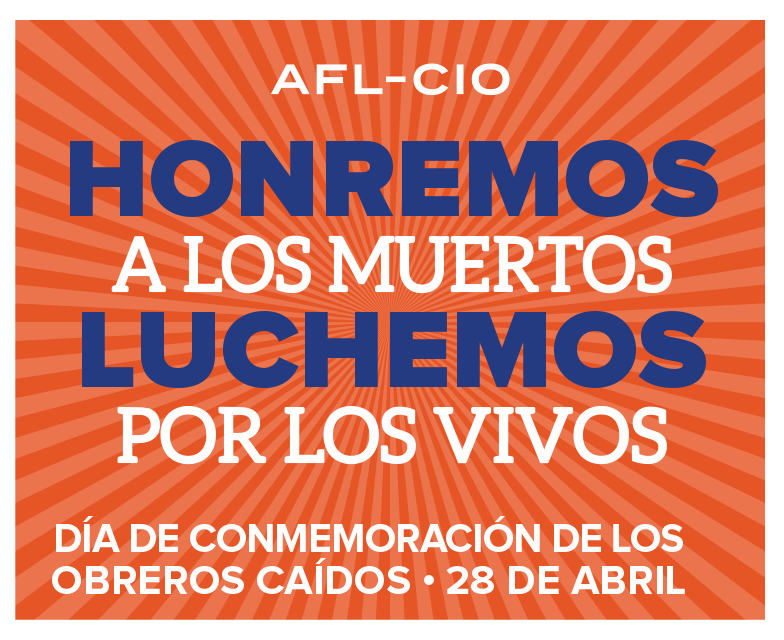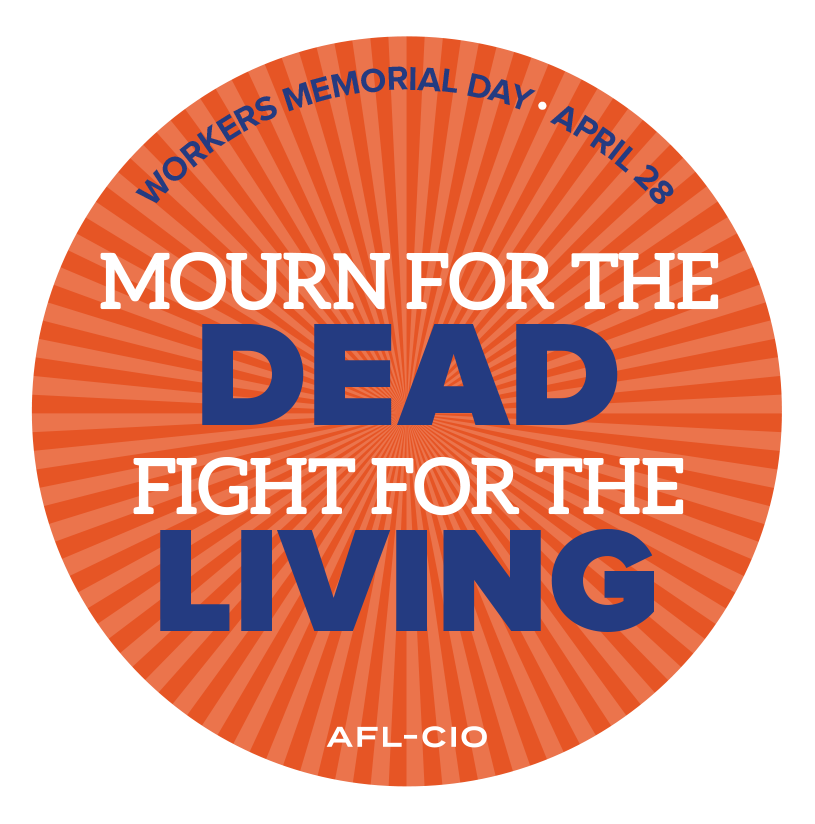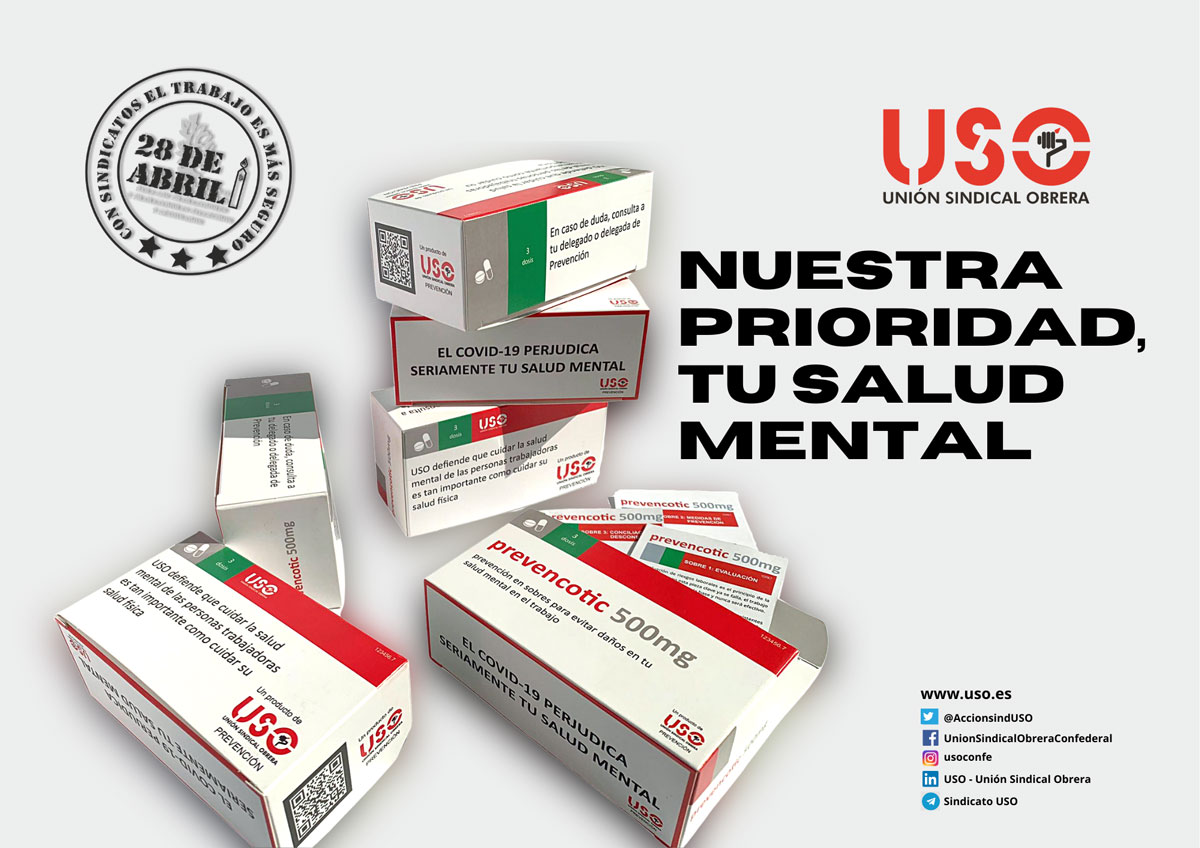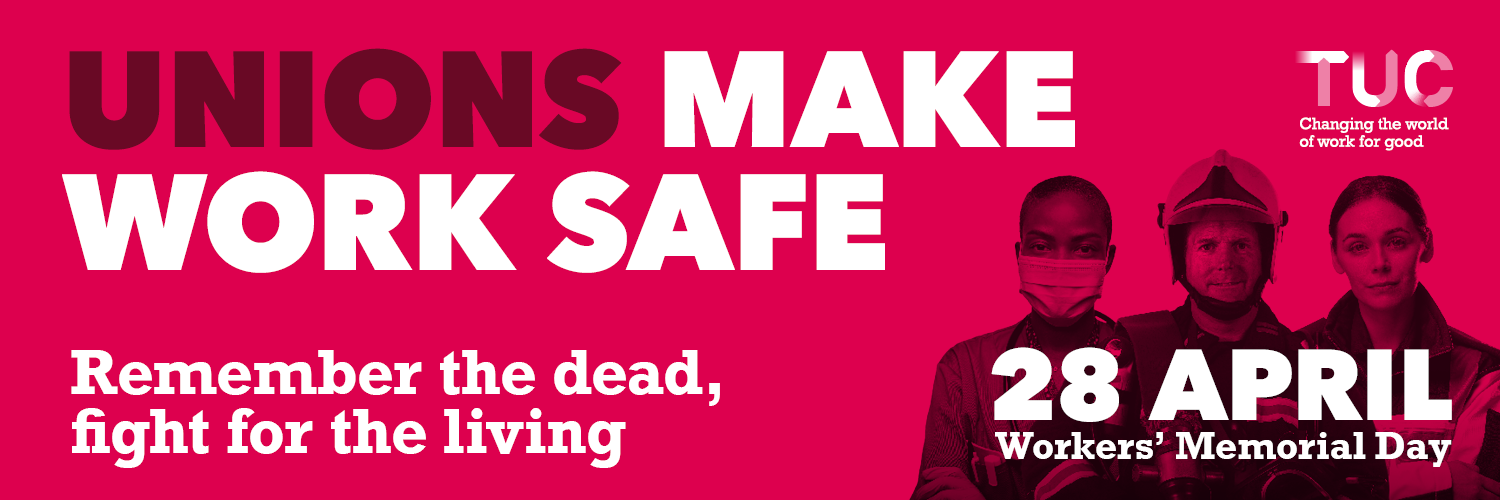
This Workers Memorial Day, April 28, is just around the corner. As workers continue to battle the COVID-19 pandemic in their workplaces every day, the labor movement will commemorate those we have lost on the job and call to renew the promise of a safe job for every worker and fight for stronger safety and health protections. This year’s theme is “Renew the Promise. Safe Jobs for All.”
Attached is AFL-CIO President Trumka’s letter, launching Workers Memorial Day 2021 and the AFL-CIO’s campaign for the Protecting the Right to Organize (PRO) Act. Also attached are English and Spanish versions of this year’s flier.
Please join us this April 28 to honor the victims of workplace injury and illness and to keep on fighting for the promise of safe jobs for all workers. As we do every year, trade unionists around the country and globe will organize our communities and workplaces to observe Workers Memorial Day. We will highlight the toll of job injuries and deaths; demand that elected officials put workers’ well-being above corporate interests; and demand safe jobs for all. This year, and every year, we will make it clear that the labor movement will defend the right of every worker to a safe job and fight until that promise is fulfilled. 
Please use the resources below when planning for this year’s Workers Memorial Day and reach out to us with any questions, concerns, comments along the way.
Materials and Artwork:
Please scroll down our Workers Memorial Day home page to view this year’s materials and artwork: http://aflcio.org/workersmemorialday
This year, we resumed the printing and shipping of orders from our building. You can place an order for materials on our website here: aflcio.org/wmd-materials
Workers Memorial Day Events:
Planning your events and commemorations will continue to be different this year because of the COVID-19 pandemic. Please consider virtual events, actions, activities and observances with suggestions in our flier. If gathering in person, please follow CDC’s guidelines on organizing large events and gatherings.
We want to hear about your Workers Memorial Day plans! Please share your event with us here so others can view and we can include it on our map.
More Materials Coming Soon:
Soon, we will be distributing more materials to help you plan your commemorations and advocacy efforts. These include talking points, sample materials for media outreach, worker safety and health facts, state-by-state safety and health data, fact sheets on safer workplaces through the PRO Act and the recently introduced workplace violence legislation, COVID-19 facts, digital resources, infographics and other information.
How to reach out to us about Workers Memorial Day:
oshmail@aflcio.org or 202-637-5305
Hashtags you can use to build solidarity online around Workers Memorial Day and the PRO Act:
#IWMD2021 #WMD2021 #1uSafety #PROAct






